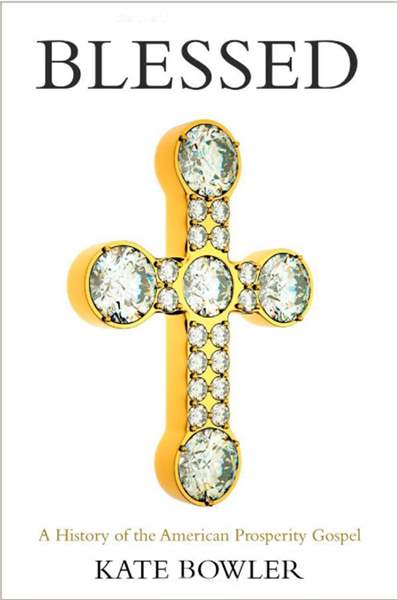
RELIGION
An inside look at American Prosperity Gospel
6/29/2013
Cover of "Blessed: A History of the American Prosperity Gospel" by Kate Bowler, Oxford University Press, 352 pages

Cover of "Blessed: A History of the American Prosperity Gospel" by Kate Bowler, Oxford University Press, 352 pages
The American prosperity gospel has been criticized by many, blessed by its Christian adherents, and denied as a source of their ministry by many who preach it. It is so established as a presence in American religion that some pastors don’t even realize that the roots of their teachings are the prosperity gospel.
Author Kate Bowler writes that this way of religion “centers on four themes: faith, wealth, health, and victory.” Through faith in the Bible and Jesus, believers have the promise of financial well-being, physical healing, and triumph over what is bad. They can even demand this from Jesus because they see his dying as salvation to be their contract that good is guaranteed today.
Critics say seem not to want to be tied to the movement and are wary of some people who have become prominent in pushing the prosperity gospel. And those who don’t realize it’s prosperity gospel that they follow might benefit from more research, such as reading Ms. Bowler’s book, Blessed: A History of the American Prosperity Gospel.
Blessed is a scholarly book, adapted from Ms. Bowler’s doctoral dissertation, but it is accessible, with only a few instances of academic items trumping the narrative, such as labeling some research as ethnographic, and hard-to-comprehend graphs of “performative” connections between speakers and religious conferences that don’t show well on the size of a book page.
Ms. Bowler traces the history of the prosperity gospel, from 19th-century influences to the rise of the movement after World War II to its status on television and in many churches, especially megachurches, in the 21st century.
The book would have benefited from a “where are they now” kind of update for a few of the prosperity ministers who are prominent in the book. She wrote of Jim Bakker’s disgrace, but didn’t note that he is again on religious television. While she covered some scandals, she didn’t mention the accusations of sexual misconduct with underage males against Eddie Long.
And she is incomplete about Carlton Pearson, a onetime protege of Oral Roberts. She stated that he launched the career of T.D. Jakes, but in her section on Bishop Jakes, she doesn’t mention Bishop Pearson’s influence on him. She also doesn’t say that Bishop Pearson was rejected by the movement when he embraced a universalist theology of an all-loving God who does not condemn.
With those exceptions, Blessed is a good history of the rise and flourishing of the gospel. It is also instructive in showing how prosperity church is done — and how it can be dangerous for the faith, wealth, health, and victory of some of its followers.
Contact TK Barger @ tkbarger@theblade.com, 419-724-6278 or on Twitter @TK_Barger.